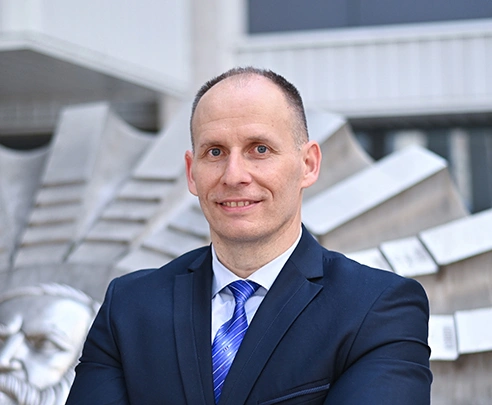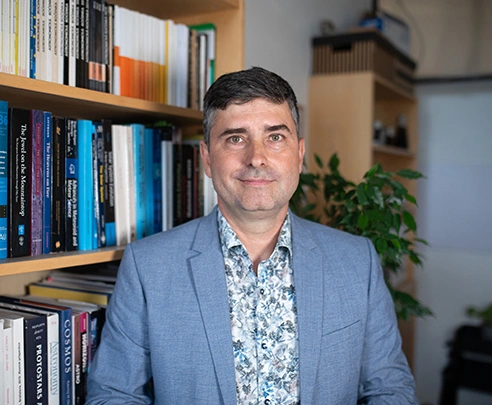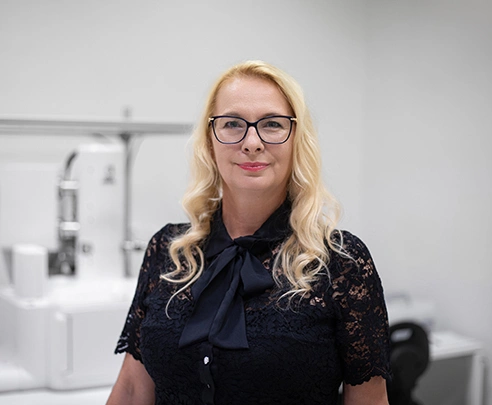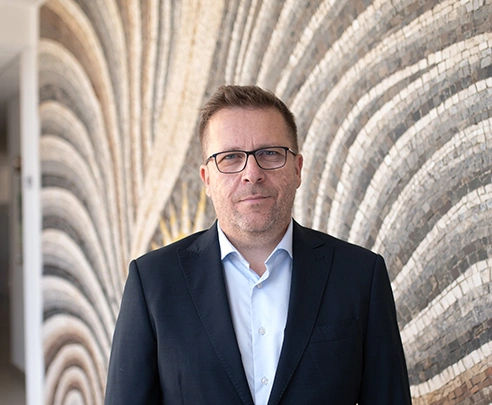The path to social medicine was not entirely straightforward for Michaela Kostičová. She originally headed toward psychiatry because she was fascinated by the possibility of “healing the soul.” When, after studying medicine, she was looking for a position at a psychiatric clinic, she received an offer in academia—at the same workplace where her grandfather once worked. Today, Assoc. Prof. MUDr. Michaela Kostičová, PhD., is the head of the Institute of Social Medicine and Medical Ethics at the Faculty of Medicine of Comenius University in Bratislava. She focuses on the area of social determinants of health, with an emphasis on the health of adolescents and people from excluded communities.
Michaela Kostičová had no idea she would one day teach, but the academic environment suited her. She discovered more space for her own research and freedom in choosing topics. Gradually, she began to focus on social medicine and today she is educating a new generation of young doctors who are developing social responsibility and complex social skills. “We deal with social science and humanities topics. Nowadays, it is becoming clear that social, communication, and managerial skills are essential in healthcare. We are opening up externally and also establishing important international collaborations.”
Assoc. Prof. Kostičová specializes in social determinants of health—examining how our health is influenced by the conditions and environment in which we live. “When we look at the health of a specific person, we must observe broader contexts and perceive it holistically. There are some diseases we cannot prevent unless we address systemic issues such as poverty, access to housing, education, and healthcare,” she explains.
Her research has two main areas. The first is working with vulnerable communities. “I mainly work with people without homes. That is the most excluded community, living in completely catastrophic conditions. If we don’t improve those, their health will never change,” notes the respected expert. In 2017, she co-founded the civic association EQUITA, which provides care to people without homes and advocacy regarding access to healthcare. Every Tuesday and Thursday, she voluntarily treats people without homes under the Lanfranconi Bridge in Bratislava. “It brings me unexpected fulfilment and energy,” she admits sincerely. One of the most significant successes of her fieldwork was a change in legislation for debtors in health insurance.
The second area of her research interest is the international HBSC (Health Behaviour in School-Aged Children) study, which monitors the health of adolescents every four years in 50 countries. Michaela Kostičová coordinates the part focused on the health and sleep of adolescents. “More than half of adolescent children sleep only 6–7 hours a day, which is really little. It is related to early rising, the amount of school obligations, but also to obesity and frequent injuries. Sleep is a very sensitive indicator of health in adolescent children,” explains Assoc. Prof. Kostičová, who, based on scientific data and examples from abroad, advocates for shifting the start of school instruction for school-aged children to half past eight in the morning. Regular and quality sleep improves attention, behaviour, learning, memory, emotional regulation, and the physical and mental health of adolescent children. The national report, which is created based on the international HBSC study, uses detailed data and analyses for specific proposals for changes that need to be implemented in schools, in the system, or in legislation. “Social impact is important to me. We also gain valuable knowledge for the parents themselves,” she notes.
In addition to field projects, she also gives lectures and educates doctors on topics of gender-based violence, field medicine, and the quality of healthcare. In her free time, she enjoys spending time with her dog, traveling with her family, and engaging in seasonal sports. She clears her mind through diving.
Michaela Kostičová uniquely connects academic education with field medicine and applies social medicine in practice. “I am happy that my students come with their own ideas for research and fieldwork. Many suggestions come directly from them; I try to create opportunities for them to develop activities they are personally interested in. This generation has a greater awareness of social responsibility, and that is admirable,” concludes the pioneer of modern social medicine in Slovakia, whose work proves that the best science arises where theory meets practice and where research results truly change people’s lives.



